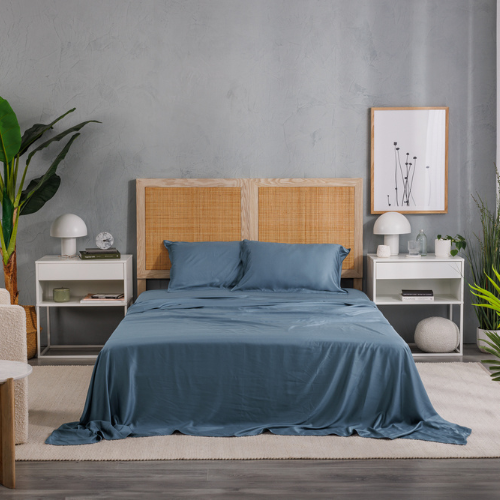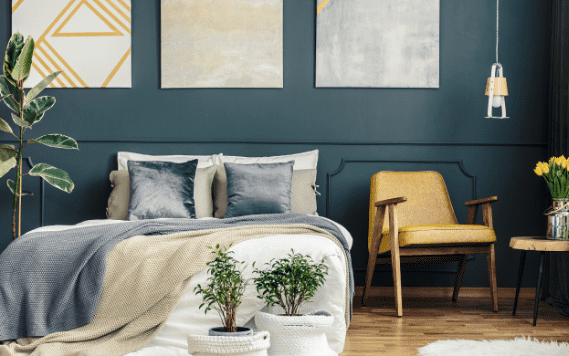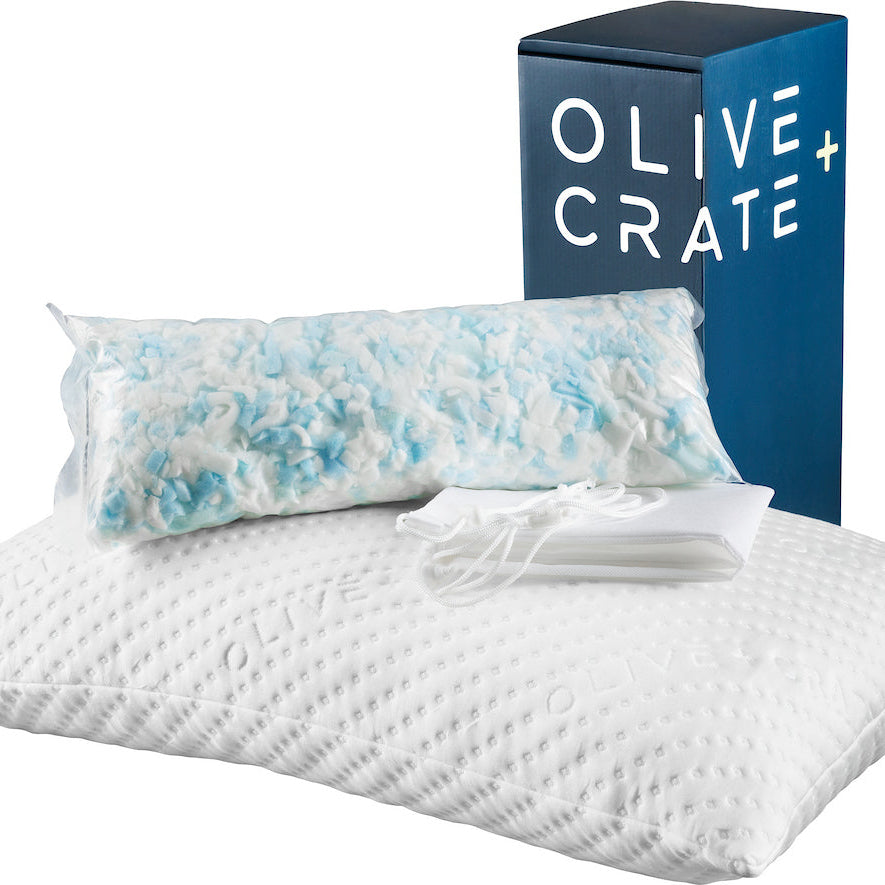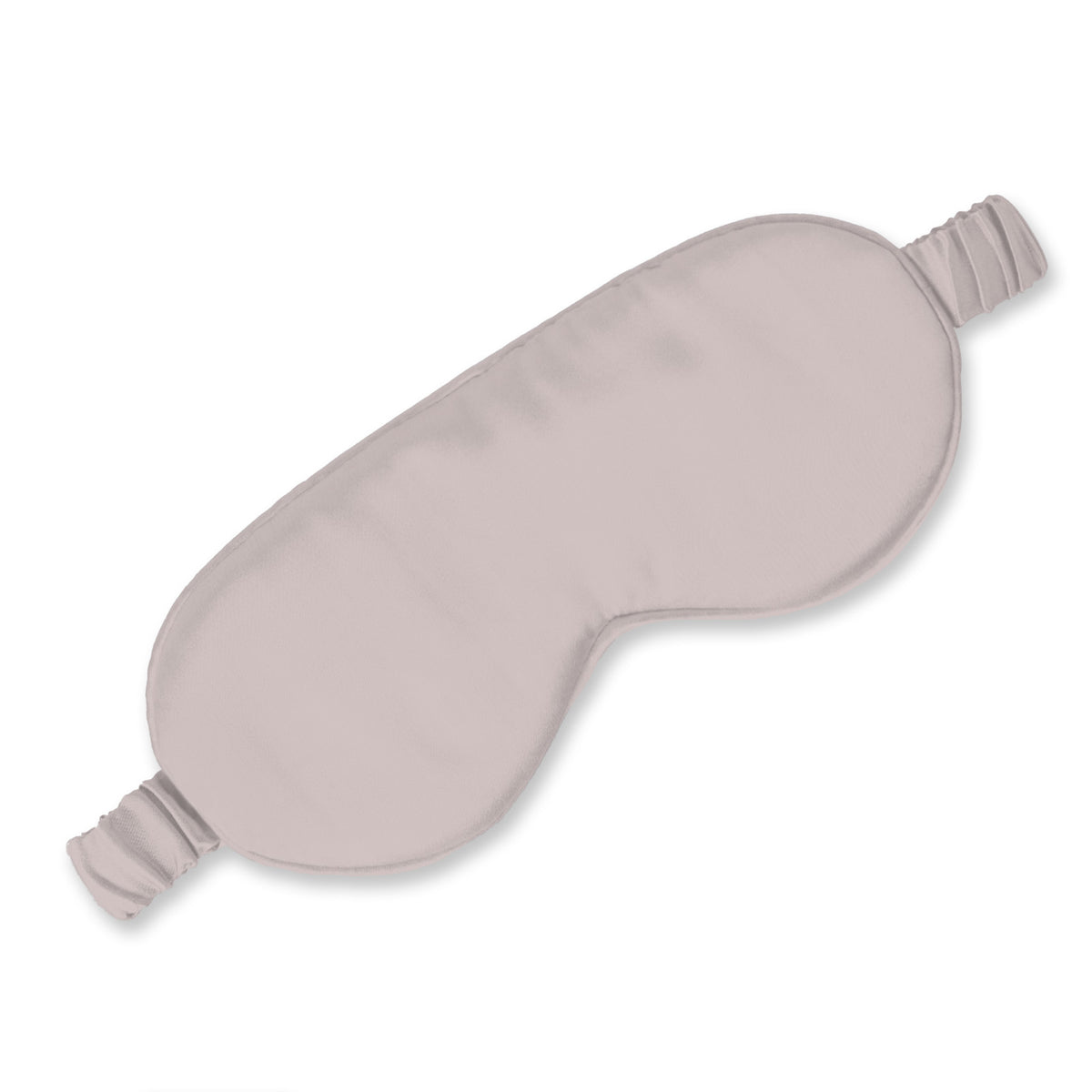by David Le Blanc
date: 01/31/2021
After such a repetitively challenging year in 2020 -- filled with all sorts of unanticipated changes -- we could all use a bit of respite. Perhaps one of the most challenging adaptations of the past year was converting spaces in our homes intended for relaxation into temporary work areas. Washing machines became desks, breakfast nooks became conference rooms and great rooms became study halls. The most invasive of these changes might have been the conversion of bedrooms into home offices. Suddenly the bedroom is no longer a place relegated to sleep and shedding the worries of our work day. In the blink of an eye, our bedrooms became the most plugged-in spaces in our homes. As many of us return to work, our bedrooms can begin to reclaim their reputation of peace and tranquility. We all deserve to retire to a quiet, calming place at the end of the day. Follow below for five tips to transform your master bedroom from workspace to serene spa retreat!
5 Steps to Creating a Spa-Like Master Bedroom
#1 Transform Your Master Bedroom by Keeping it Spa-tless

Clearing clutter is the quickest -- and least expensive -- way to lessen stress and reduce jitters. It is also the first step in setting yourself on the right path towards turning your master bedroom into a zen spa. When clutter is visible -- on one's nightstand, strewn across the floor and/or piled high on the corner chair -- it quickly clutters the mind. There are clear mental and physical health benefits to clearing away clutter in the home -- and at the office. Libby Sander explains this in her article "What does clutter do to your brain and body?" for RACGP. She notes that "research shows disorganization and clutter have a cumulative effect on our brains." Sander writes that "our brains like order" so, unfortunately, "constant visual reminders of disorganization drain our cognitive resources." Over time, this mental leaky tap reduces "our ability to focus," increasing "cognitive overload and [limiting] our working memory." Reduce clutter by organizing work papers, hanging clothes away and placing all other non-decor items in appropriate containers. If possible, place items in opaque bins to avoid being able to see their contents.
For small bedrooms without space for full armoires or large chests of drawers, follow Elizabeth Larkin’s advice in herrecent article for The Spruce. Larkin acknowledges that “when it comes to small bedroom organization, the space constraints can make it difficult to stay tidy.” However, those who can keep their small spaces free of clutter, will fall asleep easier and “sleep much better.” Perhaps best of all, the next day will start positively, rather than beginning with one “tripping over the mess on the bedroom floor.” Larkin’s tips for staying tidy in a small space include using “the space under your bed” for storage. They also include “establishing a decluttering routine” to keep you motivated and on schedule. You might also consider maximizing vertical storage to keep everything in its place. For the latter, consider purchasing stackable organizers for the top shelf in your closet or adding a tension bar for a second clothes rack.
#2 Pepper the Space with Plants

Studies have shown that viewing and interacting with nature has healing properties on the mind and body. In his article “Why 30 Minutes of Nature a Day Is So Good for Your Health” for Yes! Andres R. Edwards explains that all people, no matter how young or old, benefit from immersion in nature. Edwards writes that “in adults, studies show that being in nature will speed the health recovery process.” Exposure to nature can also “reduce blood pressure and lower the risk of cancer as well as lift people’s spirits.” Bringing the outdoors inside carries these benefits from the natural world into our man-made spaces. It does so to great effect, particularly in nurturing spaces like our bedrooms.
Melissa Michaels outlines the necessity of adding plants to the bedroom in “How to Create a Spa-Like Ambience at Home” for The Inspired Room. She writes that “elements in nature are so soothing.” They create a spa-like atmosphere by adding a touch of color and vitality without overwhelming the space. To choose the best plants for your zen spa bedroom, follow Jamie McIntosh’s advice in her recent article for The Spruce. McIntosh recommends choosing houseplants which thrive in low-light conditions and require little care. Choosing low-maintenance plants will eliminate any stress that could evolve from adding yet another responsibility to one’s already crowded to-do list. Our favorite plant on McIntosh’s list is the parlor palm, which “grows in partial to full shade in its native Guatemala.” Often found in “indoor spaces with little to no natural light,” the parlor palm is perfect for dim bedrooms. The parlor palm is especially ideal for master suites. This is because -- according to McIntosh -- “a location close to a steamy bathroom that provides a humidity boost” is best for this plant.
#3 Diffuse Essential Oils

Scent is an important element of design -- particularly at home -- because it helps define an atmosphere and psychologically delineate one room from another. Jenn Sinrich outlines how scent affects the mind in her article “The Best Essential Oil Scents for Every Room” for Reader’s Digest. SInrich writes that rosemary, lemon and cinnamon are all great scents for public and/or social spaces throughout your home. However, more intimate and private spaces like the master bedroom require a slightly different bouquet.
For the room “of your home you’re likely to spend the most time in,” Sinrich suggests “an essential oil fragrance that you enjoy." However, this scent should also be "calming, relaxing and [able to] help you get ready to fall asleep.” Sinrich’s favorites for bedrooms are jasmine and frankincense, the “earthy scents” of which “reconnect you with nature and help you feel more grounded.” If you have difficulty sleeping, consider adding a few of the “Best Essential Oils for Sleep“ listed in Sanchita Sen’s article for AmeriSleep. These include chamomile, lavender, bergamot, sage and peppermint oil, among others.
#4 Choose Tactile Textures

Fluffy rugs, cozy bathrobes, luxe sheets and plush throw pillows all make for a space anyone would love to sink into and never leave. Choosing tactile textiles you can wrap yourself in or stretch out on top of will both stimulate and calm your body and mind. We love velvet, suede, terrycloth, silk and Tencel for zen, spa-like bedrooms. In her article “7 Ways to Make Your Bedroom Feel Like a Boutique Hotel” for HGTV, Erica Reitman notes the importance of proper textiles. She emphasizes choosing sheets made from “the material that feels most comfortable to you.” Reitman also recommends picking out a plush bathrobe to lounge in, calling the buy a “truly luxe indulgence.” If a spa or hotel you have stayed in previously carries your favorite style of robe, Reitman suggests “purchasing it directly from the hotel.” When you bring it home, you will be able to maintain the atmosphere and “keep the memories alive from your special trip.”
#5 Dim the Lights

For those used to working in an office building, bright light conjures up images of washed out skin. Fluorescent bulbs create an overwhelmingly unpleasant atmosphere. This type of intense, unflattering and sometimes painful light is the exact opposite of what best suits a bedroom. In fact, not only does bright light prevent relaxation by keeping the mind alert, it also negatively affects sleep. Hiding away the blue light of your phone before bed and outfitting windows with blackout curtains are two ways to encourage better sleep. Happily, there are a number of ways to limit the negative effects of harsh lighting on sleep and decompression. Dr. Deirdre Conroy outlines the importance of dimming the lights in her article “How to Use Bedroom Lighting to Improve Sleep Quality” for Michigan Health. Dr. Conroy explains that “higher light levels have been shown to suppress melatonin.” Melatonin is a hormone vital to establishing the “body’s internal biological signal of darkness” and thus spurring sleep. To “maintain your natural sleep cycle,” Dr. Conroy recommends avoiding “direct bright light exposure before bed” and choosing bulbs that emit red wavelengths rather than blue light.
By following these five tips, your bedroom is sure to transform into a fresh and comforting spa-like space. This can be so even if your master bedroom doubles as a home office during the day.













